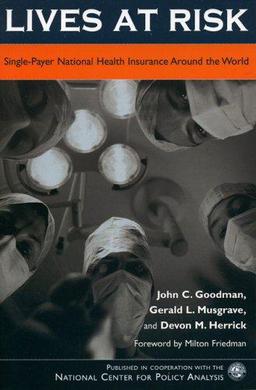Lives at Risk
Lives at Risk is a term often used to describe situations where individuals are in immediate danger of losing their lives. This can occur in various contexts, including medical emergencies, natural disasters, armed conflicts, and other critical incidents. The term underscores the urgency and severity of the situation, necessitating prompt and effective intervention to prevent loss of life.
Contexts of Lives at Risk[edit | edit source]
Medical Emergencies[edit | edit source]
In the context of healthcare, lives at risk often refer to patients experiencing life-threatening conditions such as heart attacks, strokes, severe trauma, or sepsis. Immediate medical intervention is crucial in these scenarios to stabilize the patient and provide necessary treatment.
Natural Disasters[edit | edit source]
Natural disasters such as earthquakes, hurricanes, tsunamis, and wildfires can put numerous lives at risk. These events often result in widespread destruction, leading to injuries, fatalities, and displacement of populations. Emergency response teams, including first responders, play a critical role in rescuing individuals and providing aid.
Armed Conflicts[edit | edit source]
During armed conflicts and wars, civilians and combatants alike face significant risks to their lives. The presence of explosive devices, gunfire, and other forms of violence can lead to high casualty rates. Humanitarian organizations often work in these areas to provide medical care, food, and shelter to those affected.
Critical Incidents[edit | edit source]
Other critical incidents that can put lives at risk include industrial accidents, terrorist attacks, and transportation accidents. These situations require coordinated efforts from various agencies to manage the crisis and ensure the safety of individuals involved.
Response and Management[edit | edit source]
Effective management of situations where lives are at risk involves several key components:
- **Preparedness:** Developing and implementing emergency plans and conducting regular drills.
- **Response:** Rapid deployment of emergency services, including paramedics, firefighters, and law enforcement.
- **Recovery:** Providing medical care, psychological support, and rebuilding efforts to help affected individuals and communities recover.
See Also[edit | edit source]
Categories[edit | edit source]
Navigation: Wellness - Encyclopedia - Health topics - Disease Index - Drugs - World Directory - Gray's Anatomy - Keto diet - Recipes
Search WikiMD
Ad.Tired of being Overweight? Try W8MD's physician weight loss program.
Semaglutide (Ozempic / Wegovy and Tirzepatide (Mounjaro / Zepbound) available.
Advertise on WikiMD
WikiMD is not a substitute for professional medical advice. See full disclaimer.
Credits:Most images are courtesy of Wikimedia commons, and templates Wikipedia, licensed under CC BY SA or similar.Contributors: Prab R. Tumpati, MD

